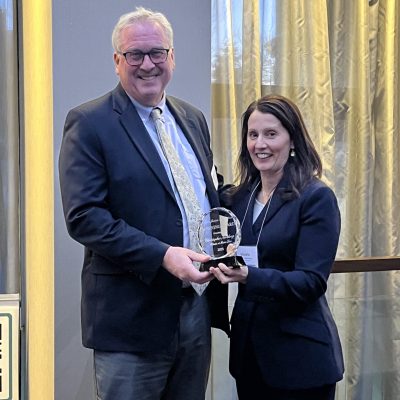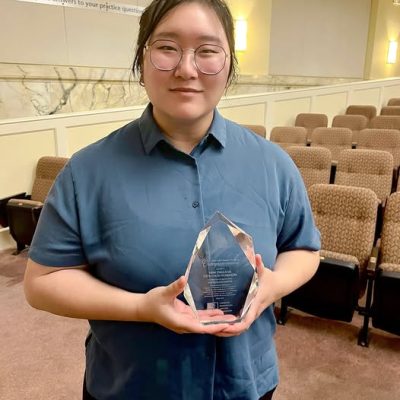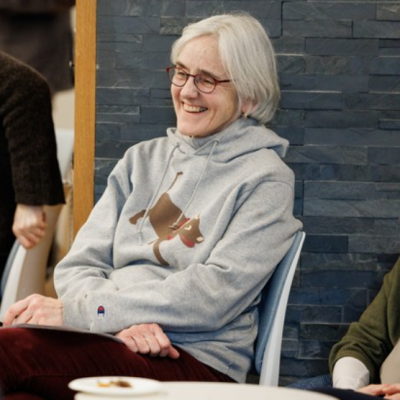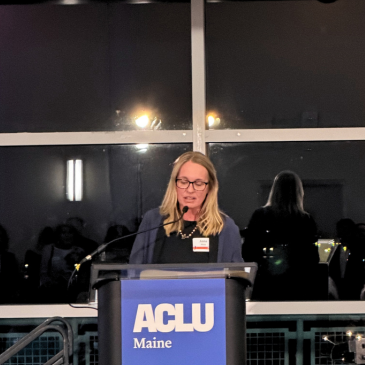Jeannie Suk Gersen, the John H. Watson Jr. Professor of Law at Harvard Law School, delivered Maine Law’s annual Constitution Day Lecture on Monday, September 19. The talk, entitled “Is the Supreme Court Supreme,” discussed recent decisions from and attitudes toward the U.S. Supreme Court in a historical context.
There’s no question it is a significant moment in the legacy of the Supreme Court. Maine Law Dean and President Leigh Saufley noted that the summer of 2022 will resonate for decades to come as the tangible realities of decisions made this year unfold.
“This has been a watershed moment in the history of jurisprudence,” Saufley said. “Today’s Maine Law students will be the advocates, policymakers, and leaders who will give shape to the changes of The Summer of 2022.”
Gersen walked through one of the most controversial Supreme Court decisions in recent memory, Dobbs v. Jackson, which overturned the precedent set by Roe v. Wade and Planned Parenthood v. Casey, which established the constitutional right to an abortion.
The process of overturning this ruling, Gersen argued, began at the state level, where for decades, many state legislatures moved to restrict access to abortion within the confines of Roe. This effort culminated in a Texas Law (SB 8), banning abortion after six weeks, and the Mississippi Law at the heart of Dobbs, which prohibited abortion after 15 weeks. This ability of states to challenge and upend federal laws throws the clout and function of the highest court in the land into question.
“How wedded are we to the idea that the ruling of the Supreme Court is supreme,” Gersen asked, challenging assumptions about the preeminence of the third branch of government.
Tensions between state governments and the Supreme Court have always existed, Gersen argued, and are inherent to tenets of federalism. She referenced, as one example, the unwillingness of many states to desegregate schools after the Brown v. Board of Education ruling in 1954. Historically, pushback against the Supreme Court and its primacy often came from conservative critics of the court. Gersen acknowledged, however, that this dynamic is shifting in the current political climate, and critiques of The Court are now originating from the progressive side of the political spectrum.
Gersen posited that this swell of criticism for the Supreme Court could lead to a rebalancing of power at the federal level, perhaps imbuing Congress with the ability to override the judiciary even on constitutional matters. Acknowledging the lack of a crystal ball, Gersen said one thing is certain, the next several decades of policy-making and legal studies will be exciting and essential to the trajectory of the country, and current law students are poised to write this next chapter in the story of America and the Supreme Court.
“Every day our law students are imagining strategies to understand and navigate our new constitutional realities,” she said in conclusion.








